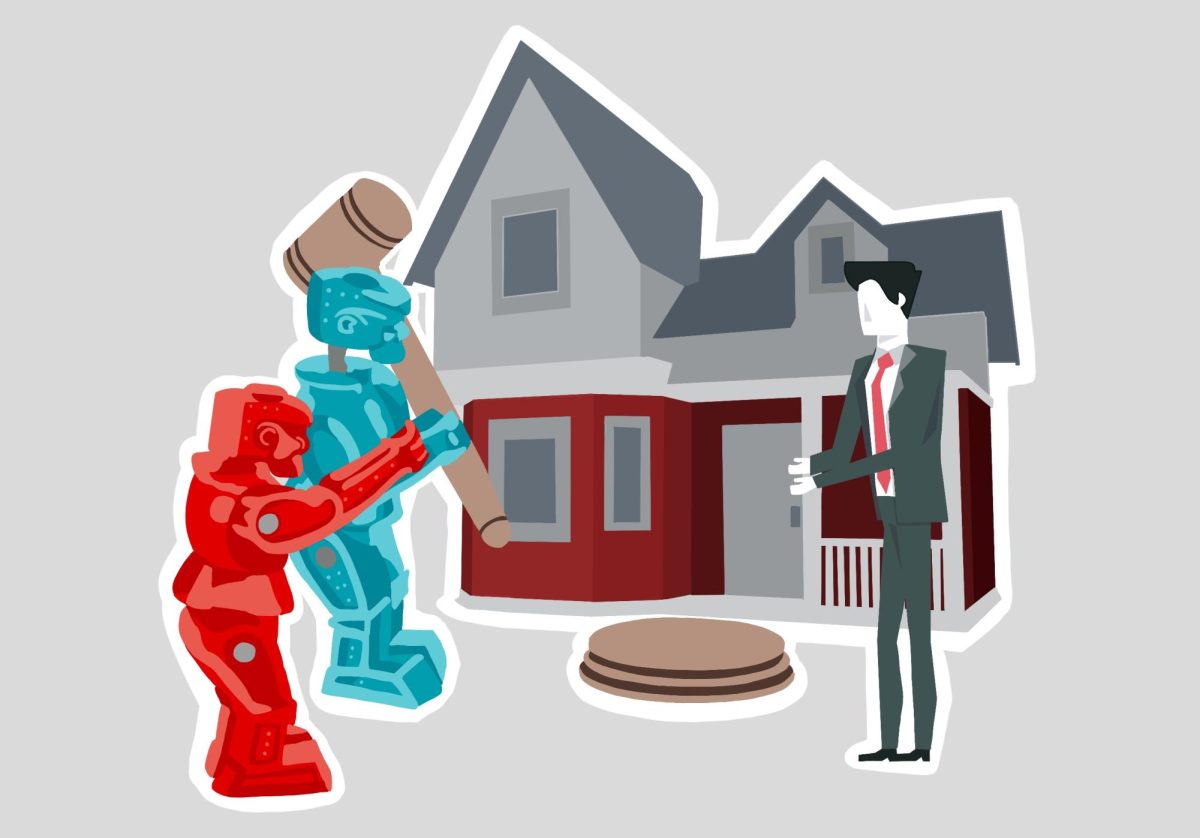The end of fall semester has brought the throes of leasing season, not only for University of Minnesota students, but for property managers and housing legal services, too.
Before securing a living situation for the next academic year, students must navigate the legal process of leasing a house or apartment. From initial property tours to signing a lease agreement, the housing search process can be rife with uncertainty — partially because the student opinion is not the exclusive voice in housing decision making.
Property managers, landlords and legal services are all parties whom students must maneuver. Like for student renters, the current leasing season presents a shift in busyness for property managers and housing legal services, both parties with differing goals.
Sydney Dreyer, property manager for Doyle Apartments, a student housing complex in Dinkytown, said from now until around Christmas she and assistant Doyle property manager Adrian Linder are focused on keeping previous tenants and attracting new ones.
“It’s basically more heavily focused on tenant retention and marketing and making sure that we have our [Internet Listing Services] up to date and our Instagram is continuing to be posted on with information or specials,” Dreyer said.
As property managers face the leasing season time crunch to receive tenant renewals and sign new ones, students feel the pressure to sign quickly. Shana Tomenes, a staff attorney at the University’s Student Legal Service, said the pressure to sign as soon as possible benefits property managers more than students and advised against signing a lease hastily.
“[Landlords] try to get people to sign early, early, early, but I think that only benefits landlords who are able to fill their units earlier and it does a disservice to students who maybe don’t have their life planned out 10 months in advance,” Tomenes said. “I know I don’t have my life planned out 10 months in advance.”
Dreyer and Linder said clear communication and understanding students’ needs and frustrations are a priority in their approach to marketing the Doyle.
“It’s not fun for prospects to see online, ‘Your rent is 900,’ and then they come into an apartment and they see, ‘Oh, my rent is actually going to be 1,100 because of all these additional fees,’” Dreyer said. “Transparency is big, clear communication.”
According to Tomenes, preserving transparency can also fall to the responsibility of the potential student tenant. Tomenes said student renters should be skeptical of the apartments they see on their initial tour.
“It’s important to know that what you see on a tour is not the same thing always that’s going to be in your contract or your lease,” Tomenes said. “Often students see a model unit that is not the same as your actual unit, maybe they have less nice appliances, maybe they actually don’t have windows in the bedrooms.”
According to Daniel Suitor, a housing attorney with Homeline, a non-profit tenant advocacy organization in Minnesota, the circumstances of the college housing market with inexperienced tenants, small property landlords and the high tenant turnover rate serve as the root of tenant versus property manager issues. Despite this, Suitor said most property managers renting to students are flexible and understanding.
“I think that many landlords do understand that they’re dealing with students and that they’re dealing with first time renters,” Suitor said. “The good ones work with people.”
Suitor added the best way for student renters to prevent future problems with a lease or property manager is to be diligent when reading the lease agreement because, at the end of the day, a lease is a binding contract with which tenants must comply once they have signed.
“What I don’t want students to run into is a lease violation where they’re being threatened with eviction because of some prohibited use of the property and some of those things are definitely going to be legal and enforceable for the most part,” Suitor said. “Something can seem silly but if it’s not against the law, and you agree to it in the lease, it’s probably enforceable.”
While making the right housing decision can overwhelm student renters, Tomenes said, above all else, students should trust their gut during their housing search and leasing process.
“If there’s anything in [interactions with property managers] that gives you pause, maybe they’re taking a long time to respond to you, maybe you feel like the front office isn’t being staffed in a way that it’s what you’re looking for in customer service, or you just feel like there’s something in the situation that you’re unsettled with,” Tomenes said, “trust that.”














